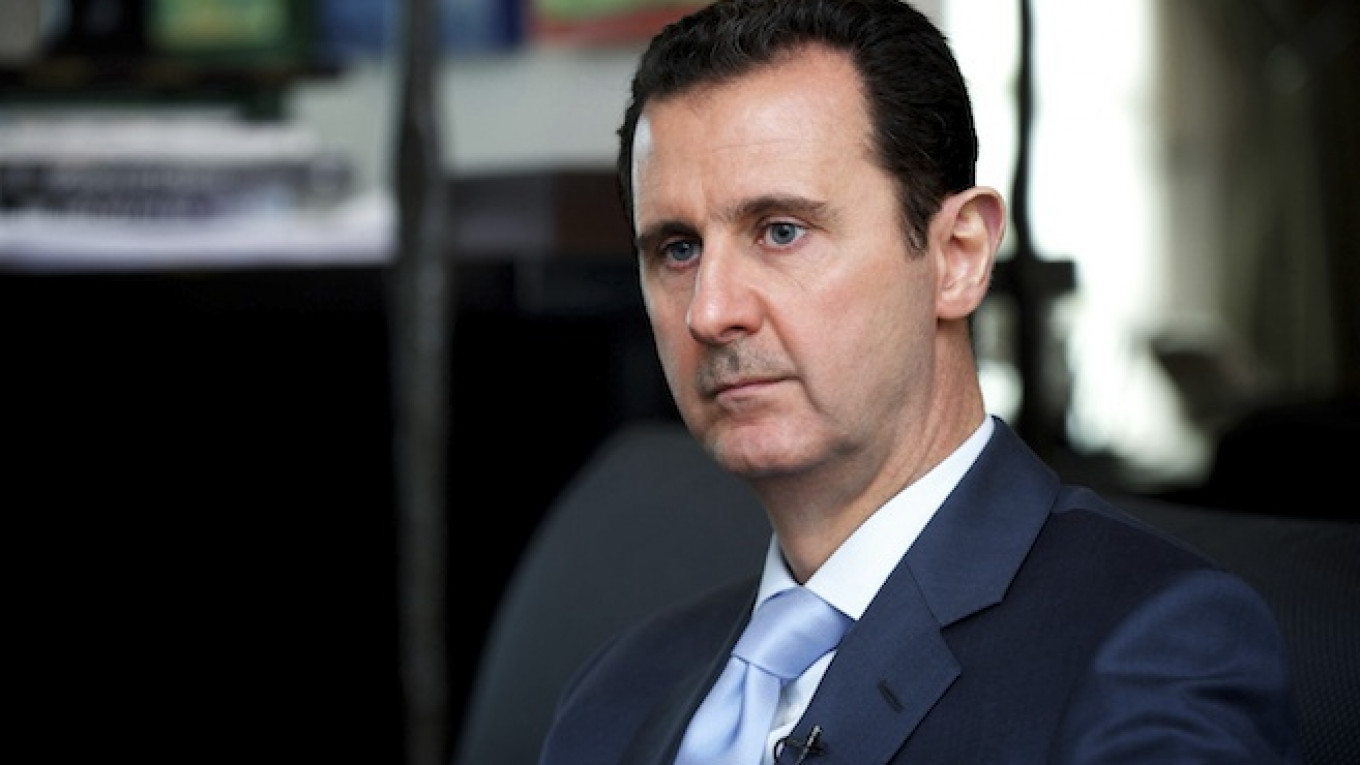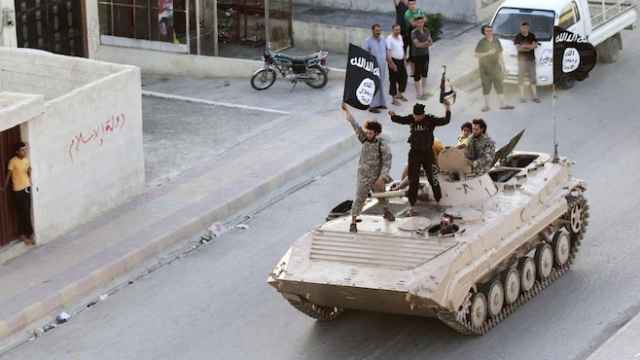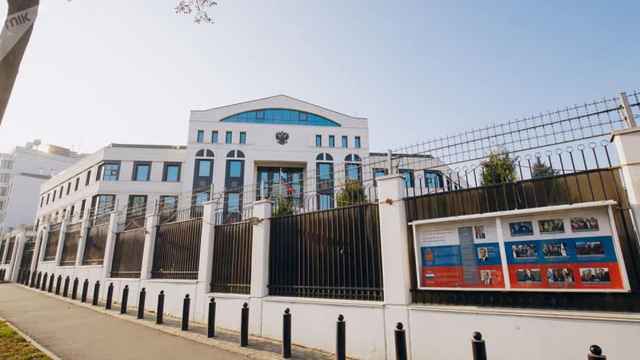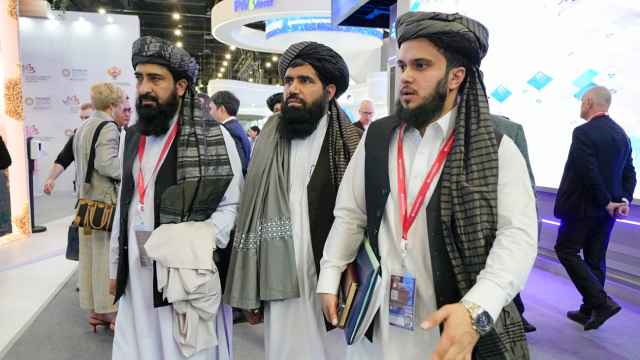BEIRUT — An ambivalent U.S. response to a Moscow peace conference on Syria, despite a firm boycott by the main opposition, shows how the fight against Islamic State fighters has reduced international pressure against President Bashar Assad.
Nearly four years into a war that has already killed more than 200,000 people and displaced millions, even the Russian hosts accept there is little chance of a breakthrough at the conference, which has been spurned by most opposition groups.
Moscow says the aim of the conference, which it is hosting from Monday, is to find ways to restart peace talks that collapsed in Geneva last year.
Russia's long-standing proposals for a peace plan do not require Assad to leave power, which Assad's main opponents consider the basis for any talks.
The U.S. — still publicly committed to removing Assad — might once have been expected to denounce a conference held on such a basis as a sham.
But since launching a military campaign last year against the hardline Islamic State group in Syria and Iraq, Washington is now less focused than before on seeking Assad's downfall. It has not objected to the Moscow talks, and U.S. Secretary of State John Kerry said he hopes they can prove useful.
Assad himself, speaking to a Czech magazine in an interview published earlier this month, said the purpose of the conference is to discuss "the unity of Syria, containing terrorist organizations [and] supporting the army" — essentially his government's agenda, yielding nothing to his opponents.
While some opposition figures could attend, it will be as individuals rather than representatives of major factions. Most are likely to hail from a Damascus-based official opposition tolerated by Assad and viewed as traitors by his armed enemies.
None of the main Sunni Muslim insurgent groups fighting on the ground have been invited.
The main opposition alliance, the Turkey-based National Coalition for Syrian Revolutionary and Opposition Forces, once touted by Western and Arab countries as a government in exile, is boycotting. It denounced the host Russia as a country that "supports the atrocities the Syrian regime is committing."
Yet Washington has held back from supporting the boycott.
"The message from the Americans was: it's up to you — you can go or you can not go," said Hisham Marwa, vice president of the National Coalition.
The ambivalent U.S. stance shows Washington "hasn't changed its position that it wants Assad to go, it has just changed its priorities," said Andrew Tabler, a senior fellow at the Washington Institute for Near East Policy.
While Washington still calls publicly for Assad's downfall, it effectively relies on Assad to permit its planes to use Syrian air space to target Islamic State fighters.
The U.S. is also in talks with Iran, Assad's other top ally, over Tehran's nuclear program, giving it another reason to put differences over Syria on the back burner.
Failure
There is no longer any serious peace process in place. In the four years of fighting, two UN mediators have hosted high profile conferences in Geneva, only to quit in frustration after their talks failed to yield meaningful progress.
A year after the last failed conference, the latest UN mediator, Steffan de Mistura, is no longer emphasizing a political deal, instead seeking to broker local cease-fires to reduce the humanitarian impact of fighting on civilians.
"Except for the timid idea by de Mistura, no one has been talking about a political solution in Syria, so you have only heard about the local freezes and the Russia talks," said Hassan Hassan, an analyst at Delma Institute in Abu Dhabi.
Like the Moscow talks, the de Mistura approach helps Assad by reinforcing the status quo, Hassan said. Local cease-fires could alleviate pressure on the government's forces in Aleppo and Damascus.
Some diplomats say that even if the Moscow talks and de Mistura's plan are unlikely to yield breakthroughs, they are worth pursuing. Assad will not leave power soon and there is a need to negotiate with his government, they say.
"The hard approach of not moving a millimeter is not going anywhere," said a Western diplomat whose government backs more engagement with Syria to ease the crisis. "The destruction is so immense and nothing is happening at the moment apart from this."
A Message from The Moscow Times:
Dear readers,
We are facing unprecedented challenges. Russia's Prosecutor General's Office has designated The Moscow Times as an "undesirable" organization, criminalizing our work and putting our staff at risk of prosecution. This follows our earlier unjust labeling as a "foreign agent."
These actions are direct attempts to silence independent journalism in Russia. The authorities claim our work "discredits the decisions of the Russian leadership." We see things differently: we strive to provide accurate, unbiased reporting on Russia.
We, the journalists of The Moscow Times, refuse to be silenced. But to continue our work, we need your help.
Your support, no matter how small, makes a world of difference. If you can, please support us monthly starting from just $2. It's quick to set up, and every contribution makes a significant impact.
By supporting The Moscow Times, you're defending open, independent journalism in the face of repression. Thank you for standing with us.
Remind me later.






